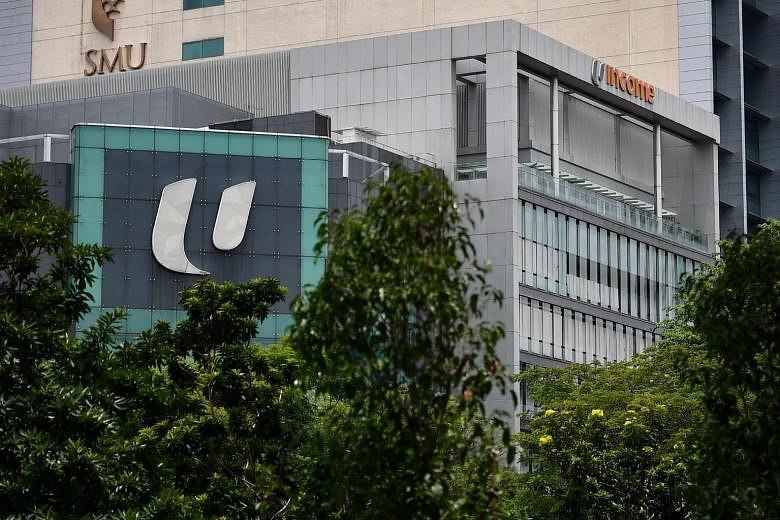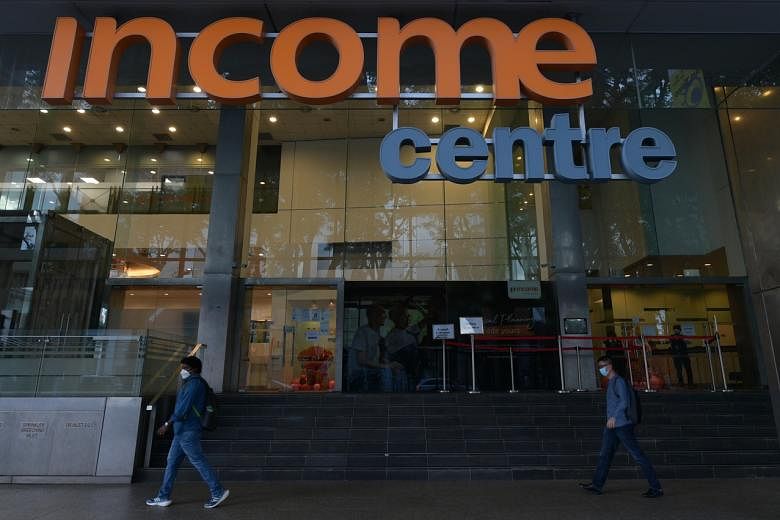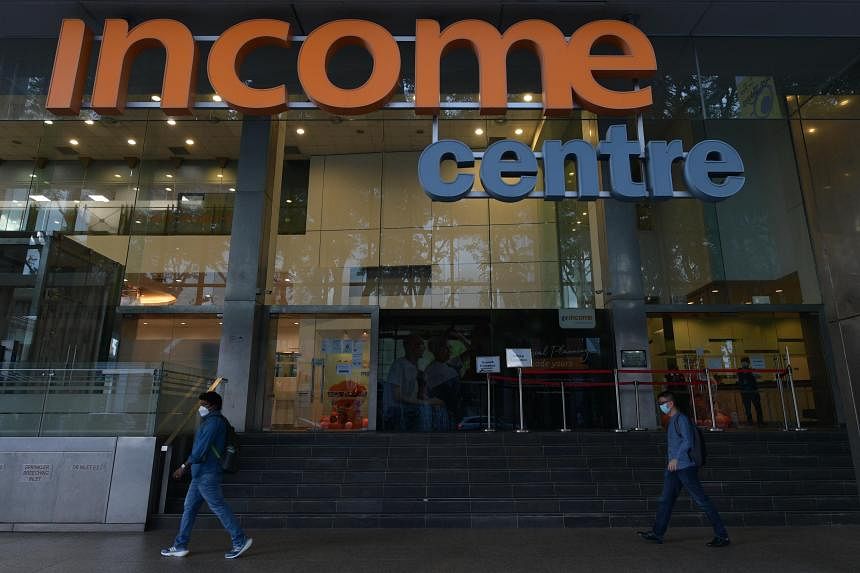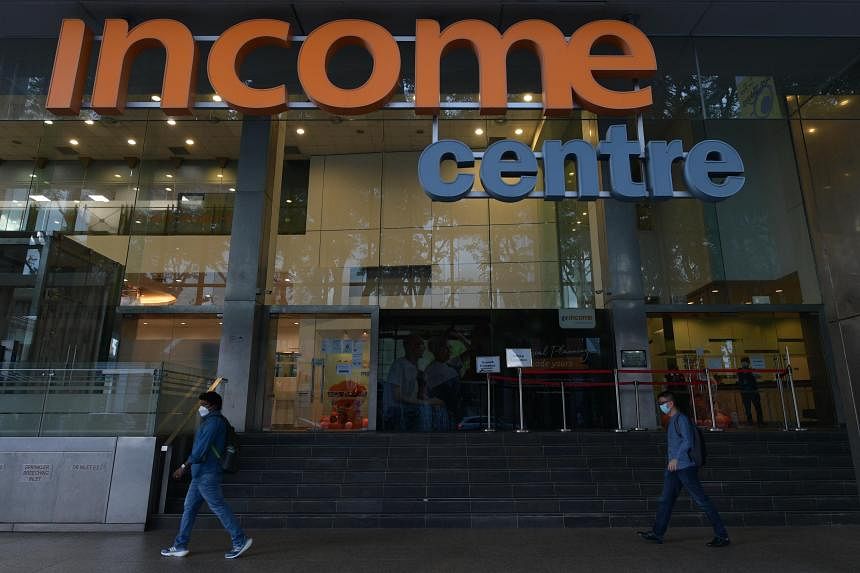- Joined
- Jul 25, 2008
- Messages
- 14,429
- Points
- 113
When it comes to self-interest and money, NTUC forget its commitment made just 2 years ago.
Will you trust the PAP government?
Tan Suee ChiehTan Suee Chieh • 2nd • 2ndPast President at the Institute and Faculty of ActuariesPast President at the Institute and Faculty of Actuaries8h • 8 hours ago
Follow
Last week, I read that Allianz Europe B.V. would be acquiring at least 51% of the shares in Income Insurance Limited (“Income Insurance”) at S$40.58 per share, valuing the entire company at approximately S$4.4 billion.
NTUC Income has not only reversed its 2022 commitment to maintain NTUC Enterprise as the majority shareholder but NTUC Enterprise would also crystallise a significant capital gain through the sale of its shares. This gain, I argued in 2022, should be more fairly distributed to those shareholders who invested before NTUC Enterprise's capital injection in 2015-2020.
I am sharing a memorandum I wrote to the MAS dated February 13, 2022, in which I objected to the basis of the corporatisation of NTUC Income. Extracts of MAS response are also included.
From the documents, two main issues emerge:
1. A clear commitment was made by NTUC Income and NTUC Enterprise in 2022 in writing that NTUC Enterprise would remain a majority shareholder after corporatisation. This commitment was used to alleviate concerns about corporatisation. It is troubling that within two years, this commitment was rescinded.
2. There was a dilution of minority interests due to NTUC Enterprise's injection of capital, 63 million shares at a par value of $10 between 2015 and 2020, when the economic value was multiple times that. Issuing these shares at par value was justifiable at that time because the class of shares issued to NTUC Enterprise could not be redeemed. However, with corporatisation, these shares can now be sold at market value, leading to a substantial capture of value by NTUC Enterprise and the dilution of the economic interests of minority shareholders. Inearly 2022, I engaged with the NTUC Income Board as a private citizen, advocating for a fairer distribution of equity gains for shareholders who invested before NTUC Enterprise's capital injection, but without success. I requested MAS to intervene under Section 117 (3) of the Insurance Act. MAS noted my concerns and shared them with the Registrar of Cooperatives, the regulator of cooperatives. The Registrar of Cooperatives felt it was an issue for NTUC Income to resolve. I left matters as they were until today.
I believe regulatory and corporate transparency are key to sound governance. It is also important that citizens speak up on matters of public interest, as this promotes accountability and democracy.
In my view, NTUC Income minority shareholders have been treated unfairly. Since my background allows me to have a deeper understanding of this complex issue, I feel obliged to speak up on this matter.
It is in this spirit that I share this correspondence. I leave it to readers to judge if our governance systems and culture have served us well. If they have not, I would be interested in your comments.
1. What should have happened?
2. What can be done now?
3. What can we learn from this case to improve our governance systems and culture for the future?
Many thanks for reading.
Will you trust the PAP government?
Tan Suee ChiehTan Suee Chieh • 2nd • 2ndPast President at the Institute and Faculty of ActuariesPast President at the Institute and Faculty of Actuaries8h • 8 hours ago
Follow
Last week, I read that Allianz Europe B.V. would be acquiring at least 51% of the shares in Income Insurance Limited (“Income Insurance”) at S$40.58 per share, valuing the entire company at approximately S$4.4 billion.
NTUC Income has not only reversed its 2022 commitment to maintain NTUC Enterprise as the majority shareholder but NTUC Enterprise would also crystallise a significant capital gain through the sale of its shares. This gain, I argued in 2022, should be more fairly distributed to those shareholders who invested before NTUC Enterprise's capital injection in 2015-2020.
I am sharing a memorandum I wrote to the MAS dated February 13, 2022, in which I objected to the basis of the corporatisation of NTUC Income. Extracts of MAS response are also included.
From the documents, two main issues emerge:
1. A clear commitment was made by NTUC Income and NTUC Enterprise in 2022 in writing that NTUC Enterprise would remain a majority shareholder after corporatisation. This commitment was used to alleviate concerns about corporatisation. It is troubling that within two years, this commitment was rescinded.
2. There was a dilution of minority interests due to NTUC Enterprise's injection of capital, 63 million shares at a par value of $10 between 2015 and 2020, when the economic value was multiple times that. Issuing these shares at par value was justifiable at that time because the class of shares issued to NTUC Enterprise could not be redeemed. However, with corporatisation, these shares can now be sold at market value, leading to a substantial capture of value by NTUC Enterprise and the dilution of the economic interests of minority shareholders. Inearly 2022, I engaged with the NTUC Income Board as a private citizen, advocating for a fairer distribution of equity gains for shareholders who invested before NTUC Enterprise's capital injection, but without success. I requested MAS to intervene under Section 117 (3) of the Insurance Act. MAS noted my concerns and shared them with the Registrar of Cooperatives, the regulator of cooperatives. The Registrar of Cooperatives felt it was an issue for NTUC Income to resolve. I left matters as they were until today.
I believe regulatory and corporate transparency are key to sound governance. It is also important that citizens speak up on matters of public interest, as this promotes accountability and democracy.
In my view, NTUC Income minority shareholders have been treated unfairly. Since my background allows me to have a deeper understanding of this complex issue, I feel obliged to speak up on this matter.
It is in this spirit that I share this correspondence. I leave it to readers to judge if our governance systems and culture have served us well. If they have not, I would be interested in your comments.
1. What should have happened?
2. What can be done now?
3. What can we learn from this case to improve our governance systems and culture for the future?
Many thanks for reading.


















